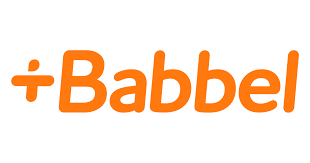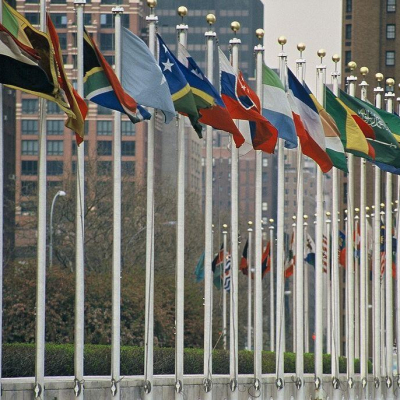International Schools in Turkmenistan

You will find below a list of the most popular international and bilingual schools for expats in Turkmenistan with fee information. The list includes nursery schools, primary and secondary (high) schools for you to find the right school to prepare for the International Baccalaureate and other accreditation in Turkmenistan. Some schools may follow the American or British curriculums with English speaking programs while others are regulated under the Russian language and system.
Education in Turkmenistan
Turkmenistan has an impressively high literacy rate. Within the last few years, UNICEF has tallied Turkmenistan’s literacy rate at about 99.8 percent for both males and females ages 15-24 (2019 data).
Public school is only compulsory through 10th grade in Turkmenistan (16 years old). At this point, students take tests to determine whether they should go to a trade school or enter the workforce. Well-scoring students may continue on for further schooling that is paid for by the state.
The Constitution of Turkmenistan provides for free access to primary education for all children and mandatory schooling up to the secondary level.
With both formal and non-formal education, the country’s mandatory education consists of the kindergarten or bagoka, the primary school or mekdep and the secondary education, which is supervised by the Ministry of Education.
The balance of the 10 year education period is spent at secondary schools, where the medium of education continues to be Turkmen.
A book entitled Rukhnama and written by a president is at the core of the curriculum. The upper 2 years of secondary school have been cancelled.
International Schools
International schools can be the perfect solution for an expat student (multinational corporation executives, children of diplomats, NGO staff) in Turkmenistan. Many schools provide similar standards of schooling around the globe, providing for an easy transition between schools whether they are in France or Vietnam.
There may be some local population, but the schools are usually geared for an international student body. Schools may follow a curriculum model from the US, UK, France, etc. Primary instruction may be any language (and multiple languages are usually taught), but it is usually in English, French, Spanish, German, or Japanese. Schools also provide internationally accepted accreditation such as the international baccalaureate.
Admission and enrolment procedures vary from school to school. Space is often limited and preference may be given to students based on nationality. Tuition tends to be expensive based on local standards, but offers high standards of learning, boast smaller class sizes, first-rate facilities, and extracurricular. Boarding facilities are available at some schools, but most only provide day classes.
Accreditation & Membership
- The CoIS (Council of International Schools) is a non-profit association of international schools and post-secondary institutions which provides educational accreditation, teacher and leadership recruitment services, links to higher education, governance assistance and help with founding new schools.
- European Council of International Schools (ECIS) is a collaborative network promoting the ideals and best practice of international education, complemented by grants and awards.
- Council of British International Schools (COBIS) is a responsive organisation that serves, supports and represents its member schools.
- New England Association of Schools & Colleges (NEASC) is a regional accrediting association which establishes standards for all levels of education, from pre-K to doctoral.
- Agency for French Education Abroad (Agence pour l'enseignement français à l'étranger, AEFE) is a national public agency under the administration of the French government that assures the quality of schools teaching the French national curriculum outside France.
- National Association of Independent Schools (NAIS) represents over 1100 independent schools and associations in the United States and abroad.
International schools in Ashgabat
Ashgabat International School
Address: Berzengi, Ataturk St.
Ashgabat, Turkmenistan
Tel: +99312 48 90 27 / 28
Email: ashgabat@qsi.org
Tuition Rates: Inquire at school
Ashgabat International School is a member of Quality Schools International (QSI), a consortium of non-profit college-preparatory schools following an American style, international curriculum. The language of instruction is English, however, French and Russian lessons are also offered. The school welcomes students from Preschool through Secondary School programs.
Russian Schools in Ashgabat
Joint Turkmen-Russian Secondary School
Address: Garashsyzlyk avenue 64, Ashgabat
Tel: +99312 48 44 28
Email: director@trsosh.edu.tm
Tuition Rates: Inquire at school
The Alexander Pushkin Joint Turkmen-Russian Secondary School is operated by the Ministry of Education and Science of Russia and the Ministry of Education of Turkmenistan. The school welcomes students from grade 1 to grade 9. The educational program of the school implements an educational process in the context of two cultures - Russian and Turkmen - based on the pedagogical technology "Dialogue of two cultures" with the inclusion in the school curriculum compiled on the basis of Russian educational standards.
- My Life Abroad -
A selection of expat stories

"A fun compulsive read!"
J. Matcham, Amazon
"I strongly advise people ready to live abroad to read this book!"
Patrice, Amazon

 Private Tuition: A Priority Among Expat Families for Their Children
Private Tuition: A Priority Among Expat Families for Their Children 5 Top International Education Systems For Expat Kids
5 Top International Education Systems For Expat Kids Same language, different ball-game
Same language, different ball-game Babbel
Babbel Embassies and Consulates in Turkmenistan
Embassies and Consulates in Turkmenistan